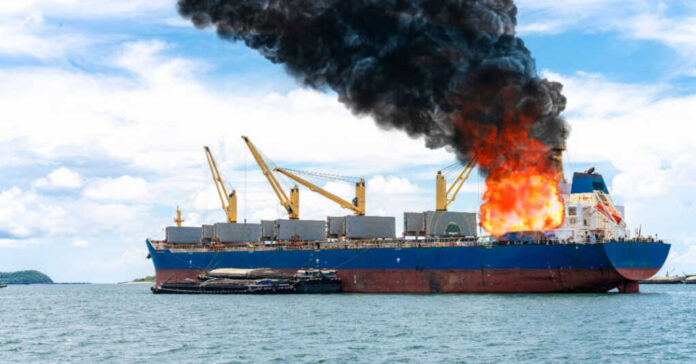
Cargo ship fires are already dangerous enough, but when that cargo is automobiles, the fire becomes significantly riskier. On July 5th, the Italian-flagged Grande Costa d’Avorio broke out in flames on the 10th deck of the vessel. Carrying cars, trucks, and vans bound for West Africa, a group of five to seven cars was engulfed in flames when crews arrived on the scene.
Due to the immense heat and flames already spreading to the 11th and 12th decks of the ship, Augusto “Augie” Acabou, 45, and Wayne “Bear” Brooks Jr., 49, became separated from the group. Crews looked for them but were initially unsuccessful, with three Newark firefighters and two Elizabeth firefighters also suffering injuries, including smoke inhalation. Before departing the scene, the bodies of the two fallen had been recovered.
Gov. Phil Murphy (D-NJ) released a statement about the incident where he said, “Our hearts are heavy today as we mourn the loss of two Newark firefighters who made the ultimate sacrifice in the line of duty.” Newark Mayor Ras Baraka said the incident was “tragic for all firefighters who know what it means to go in a burning structure in a danger that you are going to have to experience when you do so.”
While fires like these are uncommon on cargo ships like this, they do happen. Fire suppression systems in many of these ships simply are not equipped to deal with the intense heat and continuous pressure of a multi-vehicle fire. Especially with oxygen already being limited in many of these cargo ships, these fires are burning at a heat beyond oxygen and become significantly harder to extinguish.
May these members of Newark’s bravest rest easy.







